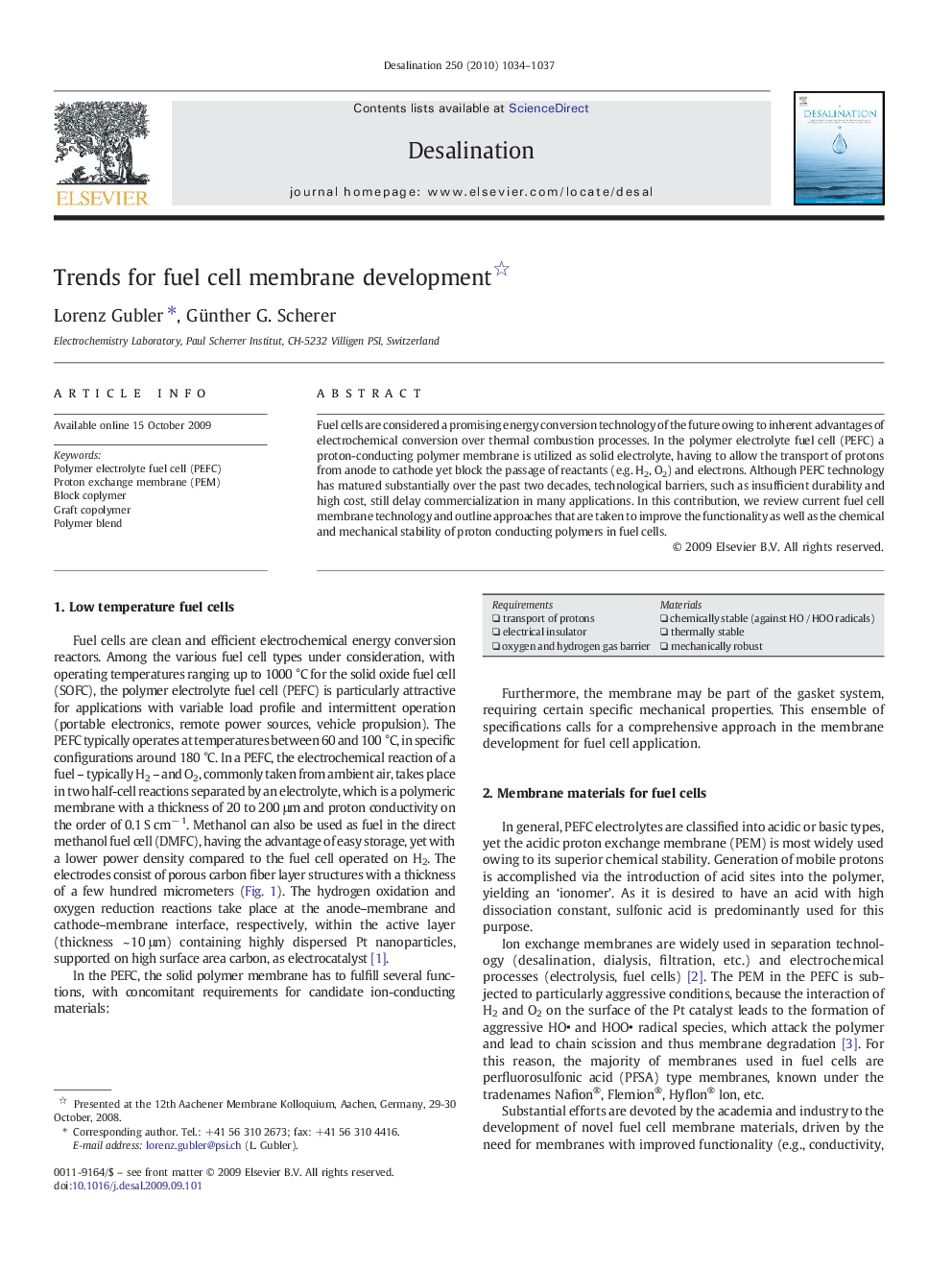| Article ID | Journal | Published Year | Pages | File Type |
|---|---|---|---|---|
| 626001 | Desalination | 2010 | 4 Pages |
Fuel cells are considered a promising energy conversion technology of the future owing to inherent advantages of electrochemical conversion over thermal combustion processes. In the polymer electrolyte fuel cell (PEFC) a proton-conducting polymer membrane is utilized as solid electrolyte, having to allow the transport of protons from anode to cathode yet block the passage of reactants (e.g. H2, O2) and electrons. Although PEFC technology has matured substantially over the past two decades, technological barriers, such as insufficient durability and high cost, still delay commercialization in many applications. In this contribution, we review current fuel cell membrane technology and outline approaches that are taken to improve the functionality as well as the chemical and mechanical stability of proton conducting polymers in fuel cells.
